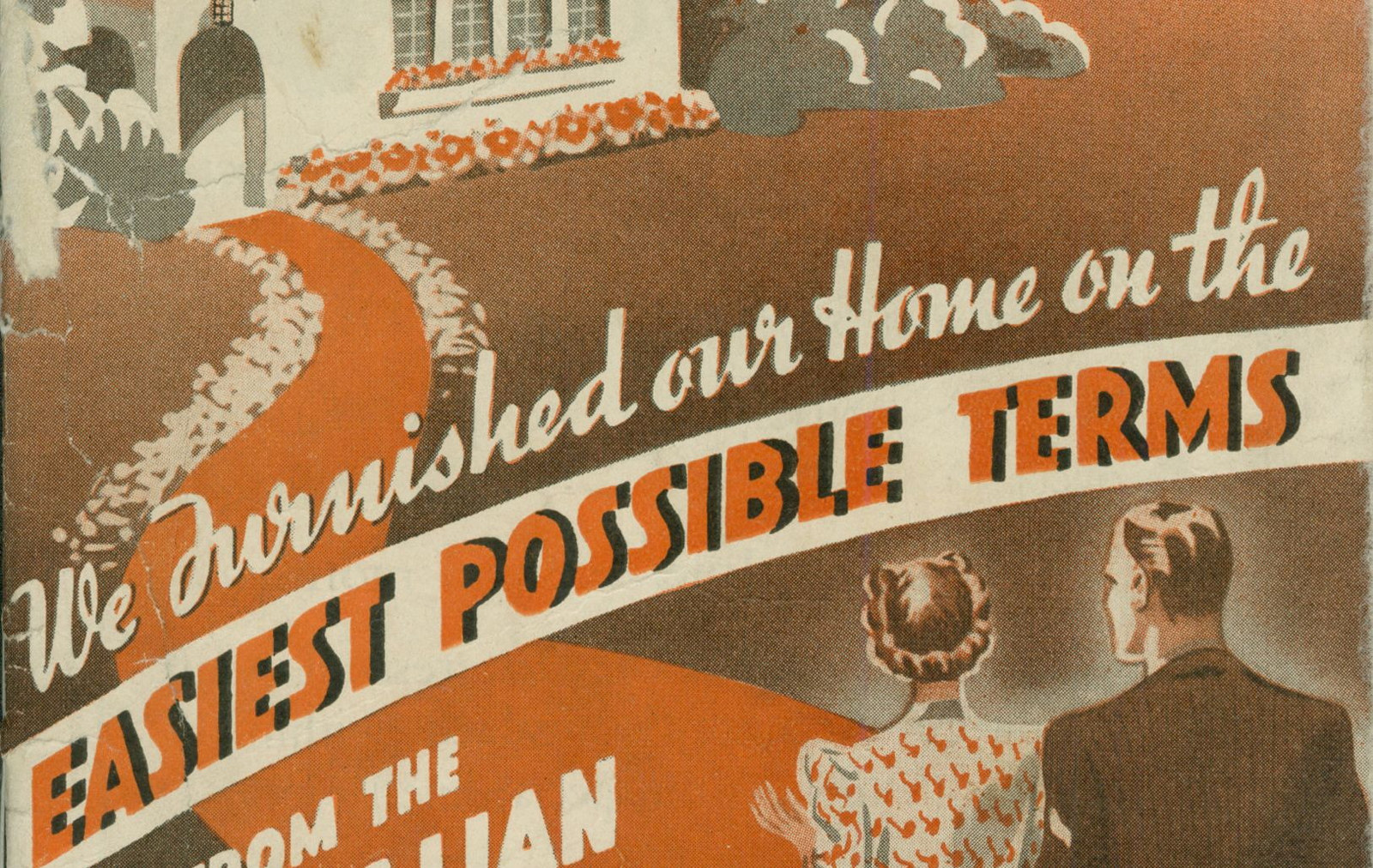JA Booth & Co
Although J A Booth & Co was a Sydney furniture and furnishing retailer for over 50 years, the company started life in a very different manner: as tea merchants.
The business was established around 1890 in Liverpool Street Sydney but by 1904 had relocated to the corner of George Street West and Jones Street, Broadway. It was only around 1919 when H Manuel sold his furniture shop on the opposite corner of Jones Street, that J A Booth & Co acquired the premises and entered the furniture trade.
Around 1931, J A Booth & Co made a major move from the edge of central Sydney to the corner of Goulburn and Pitts Streets in the Brickfield Hill area, right in the middle of a burgeoning strip of home furnishing retail stores. The new location was known as the McIlrath corner, named after this firm of grocers, with the new building constructed in 1928 to an H E Budden & Mackellar design. The six-storey brick structure provided J A Booth & Co with larger, more modern showrooms and the building was featured on the front cover of its 1933 'Catalogue of furniture' (TC 749.20493 BOO).
J A Booth & Co's 1933 catalogue featured a large volume of furniture, including a number of suites made of Queensland maple or walnut, as well as carpets, beds and bedding, ice chests and radios. By this date, the company had a regional branch in Hunter Street Newcastle and they described themselves as "manufacturers, importers, exporters, wholesale and retail furniture warehousemen and lounge suite specialists". Like most Sydney furnishing stores of the period, J A Booth & Co offered furniture at a large range of prices to appeal to customers on a wide variety of incomes, while at the same time claiming to offer better value than any other store in New South Wales.
J A Booth & Co remained in business until the 1970s but moved from its premises on the corner of Goulburn and Pitt Streets around 1958. The building on the old McIlrath corner site survives and in 2007 is occupied by the Mandarin Club.
Related materials:
To see all the JA Booth material held by the Caroline Simpson Library & Research Collection, go to the library catalogue.
More home furnishings stores
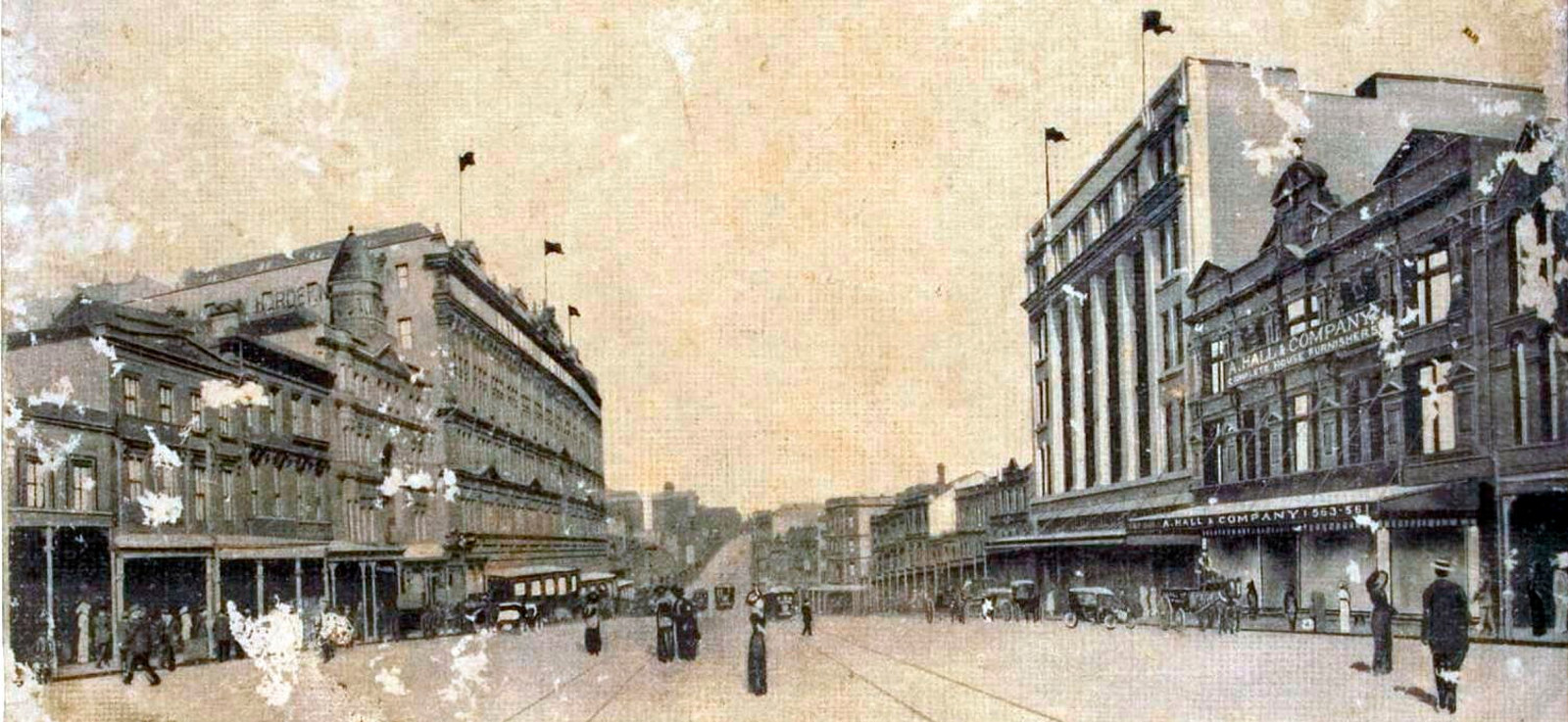
Sydney's home furnishing stores
A Hall & Co
A Hall & Co was a retailer of home furnishings and manufacturer of furniture.

Sydney's home furnishing stores
Anthony Hordern & Sons
Anthony Hordern & Sons was arguably Australia's largest retailer from the late 19th through to the mid-20th century.
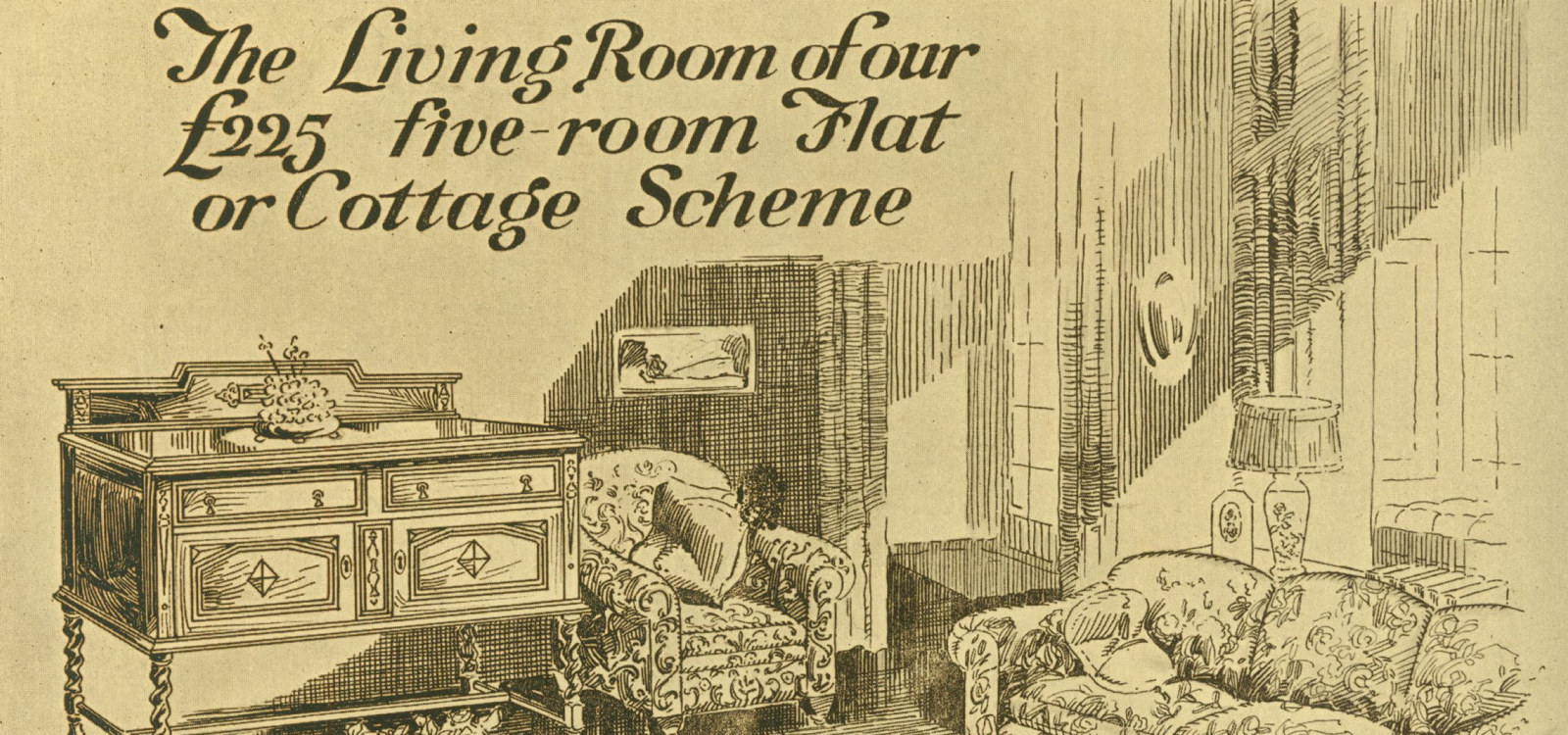
Sydney's home furnishing stores
Beard Watson & Co
Beard Watson & Co was renowned in Sydney as a retailer and manufacturer of high-class furnishings for the home.
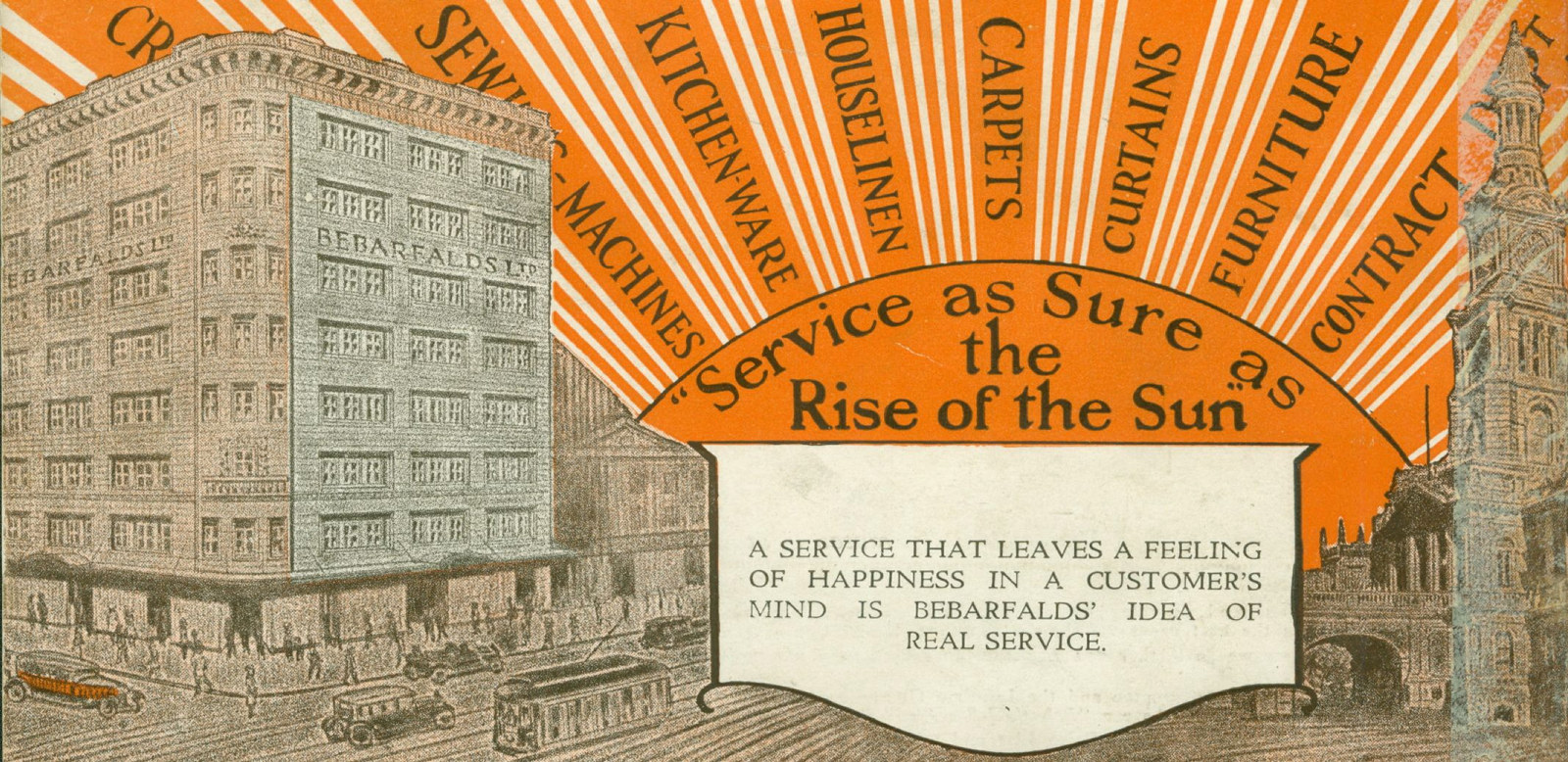
Sydney's home furnishing stores
Bebarfalds
Bebarfalds was a retailer of home furnishings and manufacturer of furniture, trading for many years from its landmark location opposite the Sydney Town Hall on the corner of George and Park Streets.
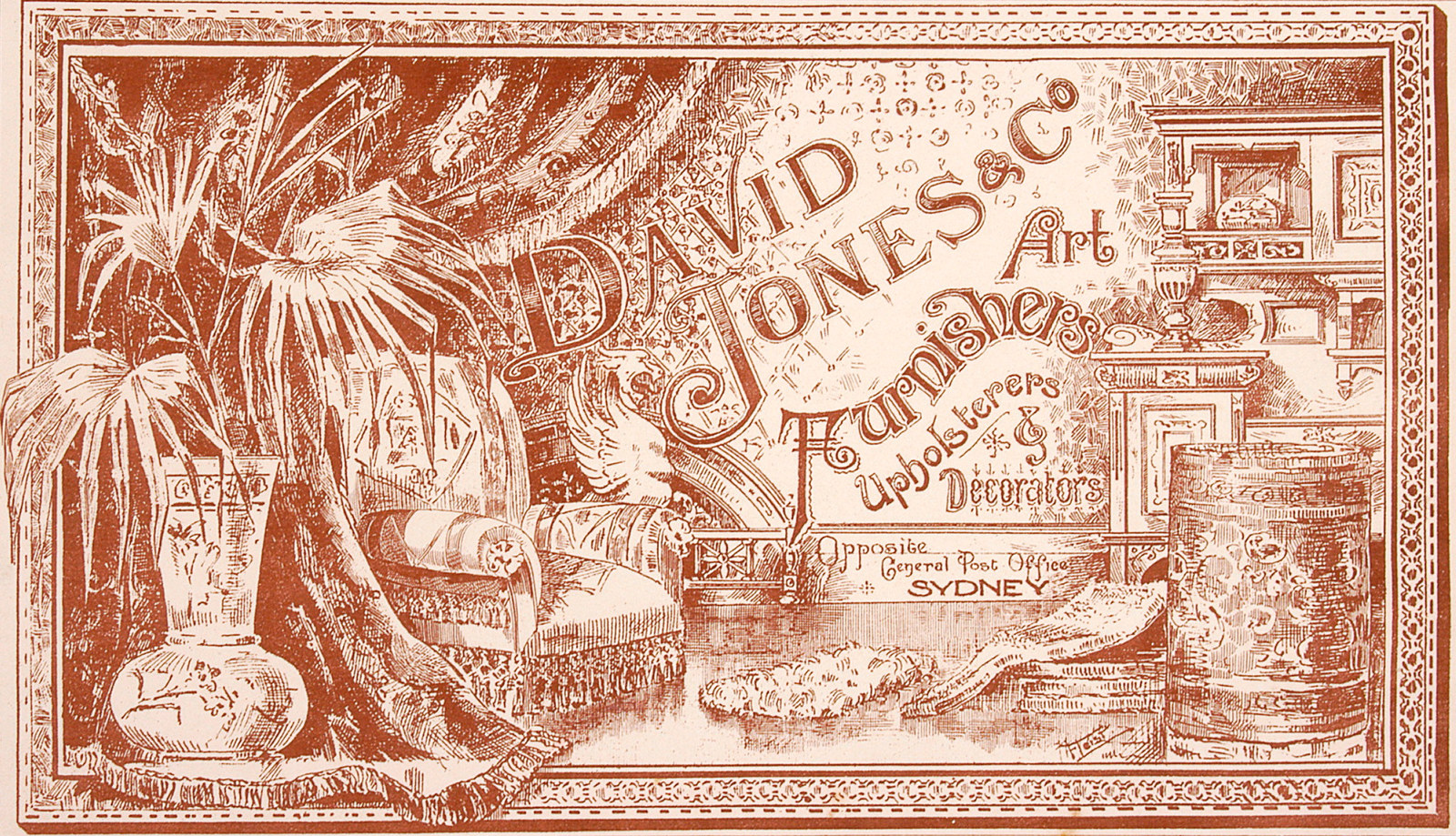
Sydney's home furnishing stores
David Jones
The David Jones name has long been synonymous with retailing of fine merchandise
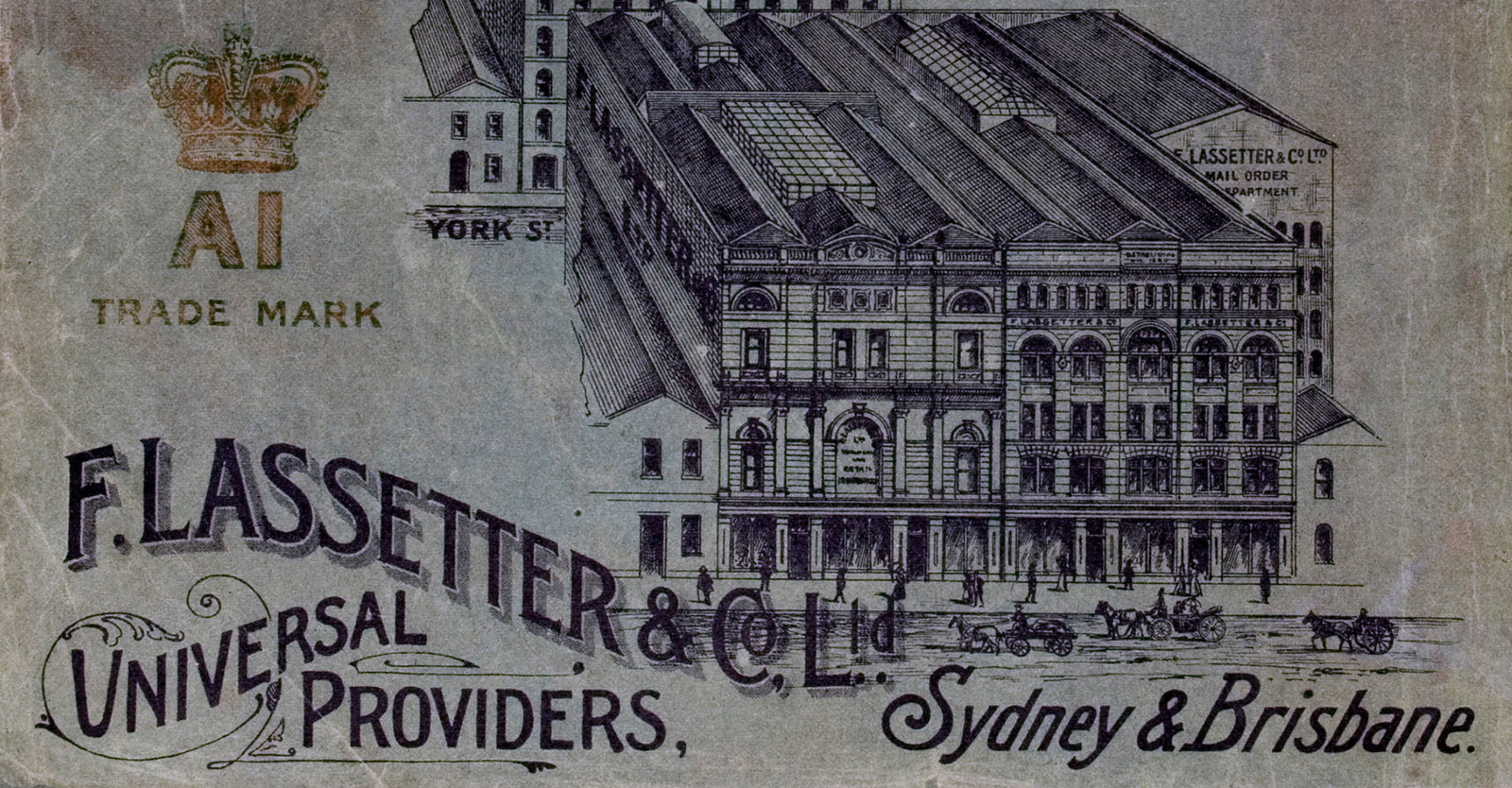
Sydney's home furnishing stores
F Lassetter & Co
F Lassetter & Co started life as an ironmongery business, becoming one of Sydney's largest 'universal providers' by the end of the 19th century
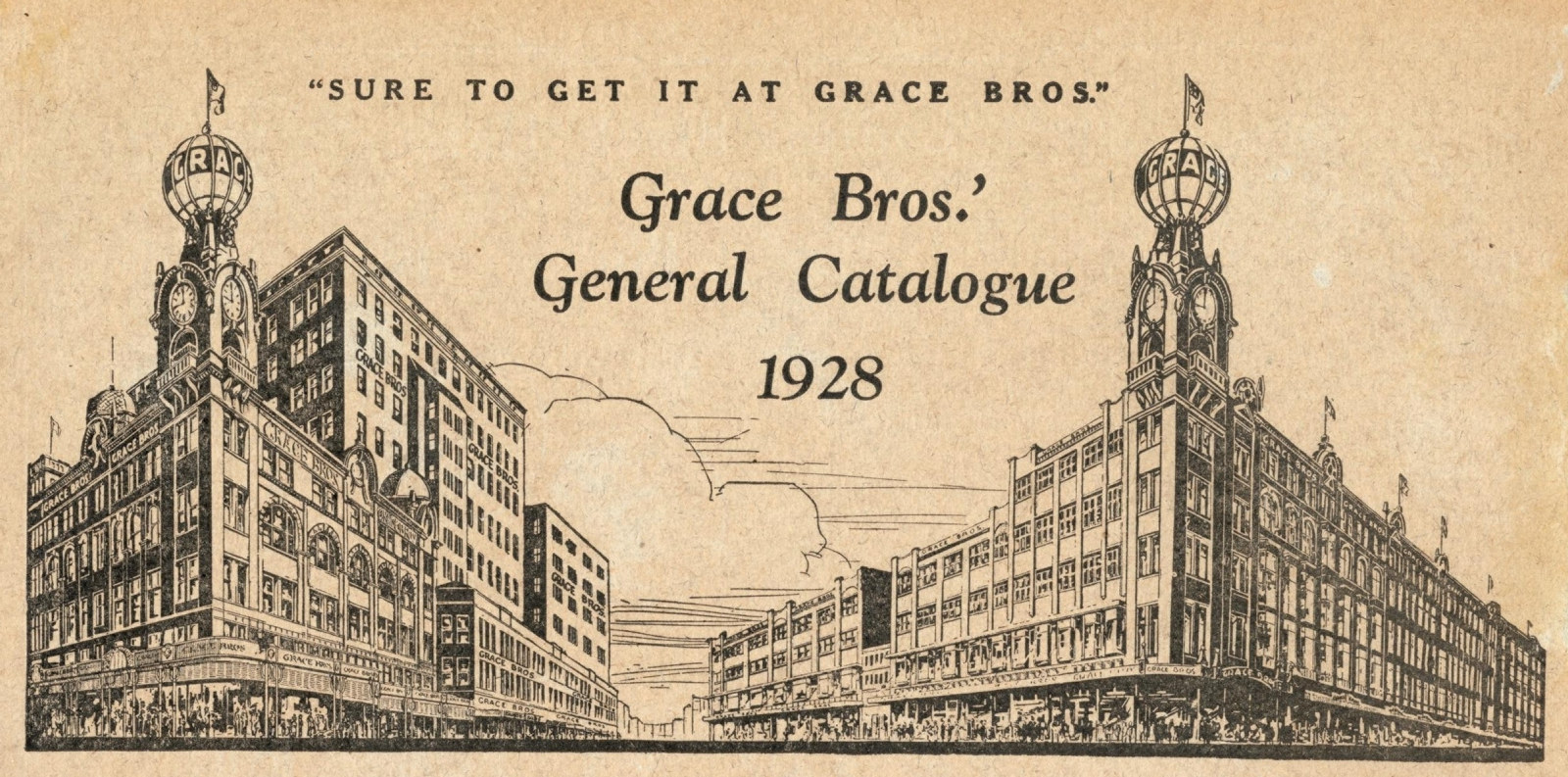
Sydney's home furnishing stores
Grace Bros
From its location just outside Sydney’s main business district, Grace Bros grew to become one of the city’s largest department stores.
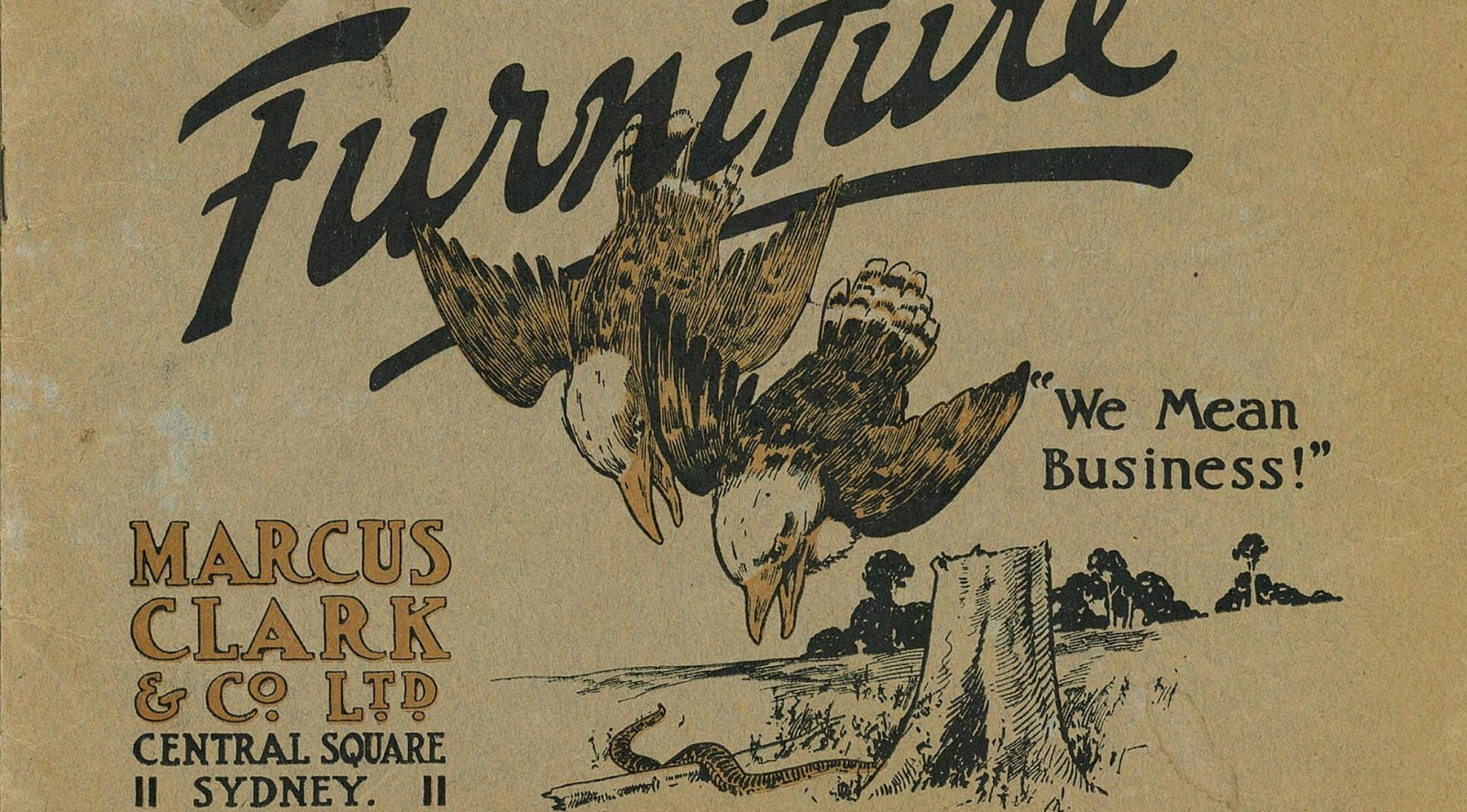
Sydney's home furnishing stores
Marcus Clark & Co
From a modest start in the Sydney suburb of Newtown in 1883, Marcus Clark & Co rose to become one of the city's largest department stores
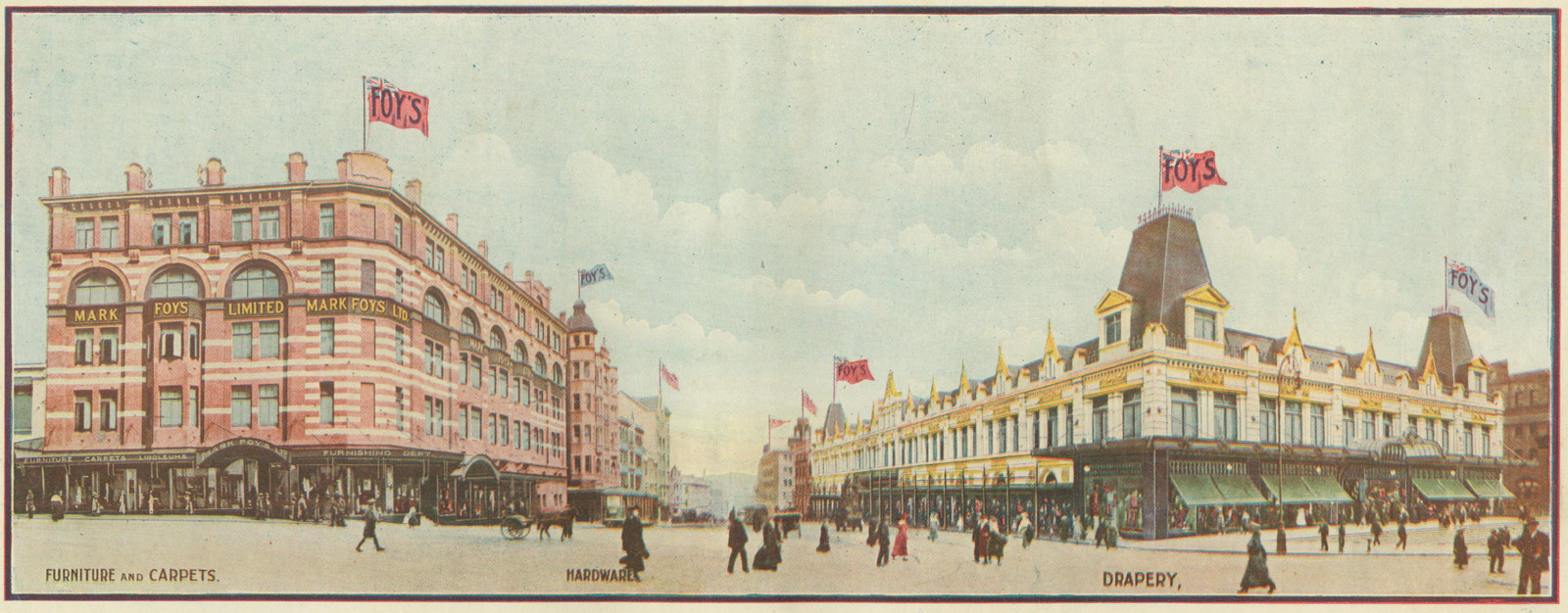
Sydney's home furnishing stores
Mark Foyʼs
Most Sydneysiders associate Mark Foy’s with its impressive former home, now used as the District Court
Published on
